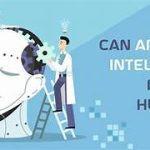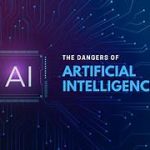The Role of Artificial Intelligence in Healthcare
Introduction
Artificial Intelligence (AI) is transforming industries globally, and healthcare is no exception. The integration of AI into healthcare systems is revolutionizing patient care, diagnostics, treatment planning, and operational efficiency. By leveraging advanced algorithms, machine learning models, and data analytics, AI is providing unprecedented opportunities to enhance outcomes, reduce costs, and improve accessibility in healthcare.
This article delves into the role of AI in healthcare, examining its applications, benefits, challenges, and future potential.
1. The Fundamentals of AI in Healthcare
What Is AI in Healthcare?
AI in healthcare involves the use of machine learning, natural language processing (NLP), computer vision, and other AI technologies to analyze medical data and deliver actionable insights. These technologies mimic human intelligence, enabling machines to learn from data, identify patterns, and make informed decisions.
Key Components
- Machine Learning (ML): Algorithms that improve over time with data exposure.
- Natural Language Processing (NLP): Enables machines to understand and process human language, useful for analyzing medical records and research papers.
- Computer Vision: Facilitates the analysis of medical images like X-rays, MRIs, and CT scans.
- Robotic Process Automation (RPA): Automates administrative tasks such as scheduling and billing.
2. Applications of AI in Healthcare
Diagnostics
AI-powered diagnostic tools can analyze vast datasets to identify diseases with high accuracy. For example:
- Radiology: AI algorithms detect abnormalities in medical imaging, such as tumors in X-rays or CT scans.
- Pathology: AI assists in identifying cancer cells in tissue samples.
- Cardiology: Algorithms predict heart diseases by analyzing ECG data.
Personalized Medicine
AI enables personalized treatment plans by analyzing genetic data, medical history, and patient behavior. This approach is especially effective in fields like oncology, where tailored therapies improve treatment outcomes.
Drug Discovery
AI accelerates drug development by analyzing molecular data to identify potential drug candidates. Companies like DeepMind and IBM Watson are leveraging AI to reduce the time and cost associated with traditional drug discovery.
Virtual Health Assistants
AI-powered chatbots and virtual assistants provide 24/7 support, answer medical queries, and guide patients in managing chronic conditions. Examples include Babylon Health and Ada Health.
Administrative Efficiency
AI optimizes administrative processes, such as:
- Scheduling: Automated appointment scheduling systems reduce wait times.
- Billing: AI detects billing errors and ensures accurate claims processing.
- Electronic Health Records (EHRs): NLP tools extract meaningful insights from unstructured EHR data.
3. Benefits of AI in Healthcare
Enhanced Accuracy
AI minimizes human error by analyzing data with precision. This is particularly crucial in diagnostics, where early detection can save lives.
Increased Efficiency
By automating repetitive tasks, AI allows healthcare professionals to focus on patient care. This improves operational efficiency and reduces burnout.
Cost Reduction
AI-driven solutions lower costs by streamlining processes, reducing diagnostic errors, and enabling early disease detection and prevention.
Improved Accessibility
AI bridges gaps in healthcare accessibility, especially in underserved regions. Telemedicine platforms powered by AI extend medical expertise to remote areas.
Faster Innovations
AI expedites research by processing vast datasets, enabling breakthroughs in drug discovery and treatment planning.
4. Challenges of AI in Healthcare
Data Privacy and Security
Healthcare data is highly sensitive. Ensuring robust data encryption and compliance with regulations like HIPAA (Health Insurance Portability and Accountability Act) is crucial.
Bias in Algorithms
AI systems can inherit biases present in training data, leading to unequal treatment or inaccurate predictions for certain populations.
Integration with Existing Systems
Integrating AI into legacy healthcare systems is complex and often requires significant investment.
Ethical Concerns
Questions about accountability arise when AI systems make critical decisions, such as diagnosing life-threatening conditions or suggesting treatments.
Lack of Standardization
The absence of standardized AI protocols in healthcare complicates implementation and interoperability across institutions.
5. AI in Specialized Areas of Healthcare
Oncology
AI is revolutionizing cancer care through early detection, treatment personalization, and monitoring. Tools like IBM Watson for Oncology analyze patient data to recommend evidence-based treatment plans.
Neurology
AI aids in diagnosing neurological disorders such as Alzheimer’s and Parkinson’s. Machine learning models analyze brain scans and behavioral data to detect early signs of these conditions.
Surgery
Robotic surgical systems, powered by AI, enhance precision and reduce recovery times. The da Vinci Surgical System is a notable example of AI-driven robotic surgery.
Mental Health
AI tools, such as Woebot and Wysa, provide cognitive-behavioral therapy (CBT) techniques and emotional support, making mental health resources more accessible.
6. Real-World Examples of AI in Healthcare
Google’s DeepMind
DeepMind’s AI systems have demonstrated remarkable accuracy in diagnosing eye diseases and predicting patient deterioration.
PathAI
PathAI uses machine learning to improve the accuracy of pathology diagnoses, particularly in cancer detection.
Zebra Medical Vision
Zebra Medical Vision offers AI tools for analyzing medical imaging, aiding in the diagnosis of various conditions such as osteoporosis and liver diseases.
Aidoc
Aidoc provides radiologists with AI-powered tools to detect critical conditions in medical imaging, such as brain hemorrhages and pulmonary embolisms.
7. The Future of AI in Healthcare
Predictive Analytics
AI will play a pivotal role in predictive analytics, identifying disease outbreaks, and optimizing resource allocation.
Digital Twins
The concept of digital twins, virtual replicas of patients, could enable precise simulations for treatment planning and disease modeling.
Decentralized Healthcare
AI-driven telemedicine and wearable devices will promote decentralized healthcare, allowing patients to monitor their health in real-time.
Collaboration with Genomics
AI combined with genomics will revolutionize precision medicine, enabling treatments tailored to an individual’s genetic makeup.
AI-Powered Robots
From caregiving to advanced surgeries, robots powered by AI will become integral to healthcare delivery.
8. Ethical and Regulatory Considerations
As AI becomes more integrated into healthcare, ethical and regulatory frameworks must evolve to address:
- Patient consent and data usage.
- Accountability for AI-driven decisions.
- Transparency in AI algorithms.
- Ensuring equitable access to AI technologies.
Governments, institutions, and tech companies must collaborate to establish guidelines that prioritize patient safety and fairness.
Conclusion
AI is reshaping the healthcare landscape by improving diagnostics, personalizing treatments, enhancing efficiency, and fostering innovation. However, its successful implementation depends on addressing challenges related to ethics, bias, and integration.
While AI cannot replace human empathy and clinical judgment, it serves as a powerful ally, augmenting the capabilities of healthcare professionals and enabling better patient outcomes. By embracing AI responsibly, the healthcare industry can move closer to a future where quality care is accessible to all.


